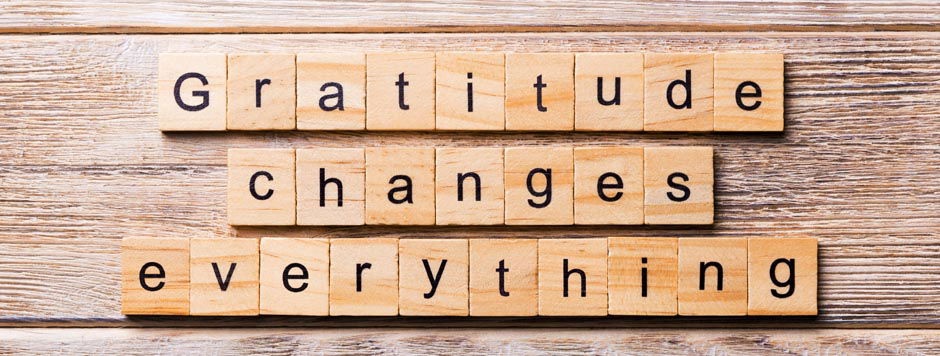The Neuroscience of Gratitude and How It Affects Anxiety & Grief

We all want a happy life. A cushy job, a perfect family, financial stability, and a great social life! And in this indefinite pursuit of happiness that is mostly like a mirage, how often do we spare a minute to thank what we already have at this very moment?Gratitude is a powerful human emotion. By conveying and receiving simple ‘thank you’ messages, we can truly derive the pleasure that we seek everywhere else. Gratitude, derived from the Latin word ‘gratia’, means gratefulness or thankfulness.In its simplest form, gratitude refers to a ‘state of thankfulness’ or a ‘state of being grateful’. We all want a happy life. A cushy job, a perfect family, financial stability, and a great social life! And in this indefinite pursuit of happiness that is mostly like a mirage, how often do we spare a minute to thank what we already have at this very moment?Gratitude is a powerful human emotion. By conveying and receiving simple ‘thank you’ messages, we can truly derive the pleasure that we seek everywhere else. Gratitude, derived from the Latin word ‘gratia’, means gratefulness or thankfulness.In its simplest form, gratitude refers to a ‘state of thankfulness’ or a ‘state of being grateful’. “Gratitude can transform common days into thanksgiving, turn routine jobs into joy, and change ordinary opportunities into blessings.” ProverbIn positive psychology, gratitude is the human way of acknowledging the good things of life.
Psychologists have defined gratitude as a positive emotional response that we perceive on giving or receiving a benefit from someone (Emmons & McCullough, 2004).A similar explanation was put forth by Emmons and McCullough who said that: “Gratitude is associated with a personal benefit that was not intentionally sought after, deserved, or earned but rather because of the good intentions of another person” (Emmons & McCullough, 2004). Thanking others, thanking ourselves, Mother Nature, or the Almighty – gratitude in any form can enlighten the mind and make us feel happier. It has a healing effect on us (Russell & Fosha, 2008). The benefits of gratitude are endless, and in this article, let us try to explore what gratitude it, discuss its scientific base, and understand how we can use gratitude to be happier in life. Gratitude in all forms is associated with happiness. Whether we say ‘thank you’ to someone or receive the same from others, the feeling it brings is that of pure satisfaction and encouragement. Expressions of gratitude help in building and sustaining long term relationships, deal with adversities and bounce back from them with strength and motivation.
Gratitude brings happiness. Gratitude improves interpersonal relationships at home and work (Gordon, Impett, Kogan, Oveis, & Keltner, 2012). The connection between gratitude and happiness is multi-dimensional. Expressing gratitude not only to others but also to ourselves, induces positive emotions, primarily happiness. By producing feelings of pleasure and contentment, gratitude impacts on our overall health and well-being as well. In a survey on gratitude in adult professionals, British psychologist and wellness expert Robert Holden found that 65 out of 100 people selected happiness over health, although they indicated that both were equally important for a good life. Holden, in his study, suggested that the roots of many psychopathological conditions like depression, anxiety, and stress are unhappiness. Simple practices like maintaining a gratitude journal, complimenting the self, or sending small tokens and thank you notes can make us feel a lot better and enhance our mood immediately. Couple studies have also indicated that partners who expressed their thankfulness to each other often, could sustain their relationships with mutual trust, loyalty, and had long-lasting happy relationships.
Gratitude improves health. Gratitude impacts on mental and physical well-being. Positive psychology and mental health researchers in the past few decades have established an overwhelming connection between gratitude and good health. Keeping a gratitude journal causes less stress, improves the quality of sleep, and builds emotional awareness (Seligman, Steen, Park, & Peterson, 2005). Gratitude is positively correlated to more vitality, energy, and enthusiasm to work harder.
**Read the whole article at
www.positivepsychology.com/neuroscience-of-gratitude